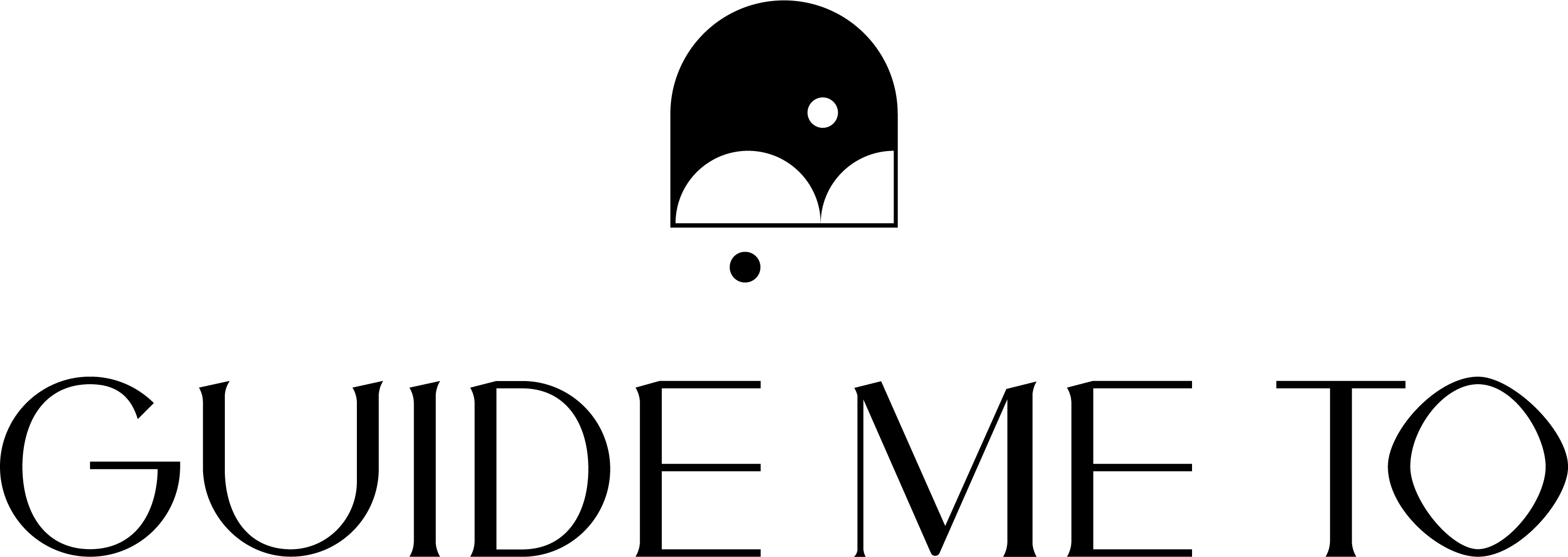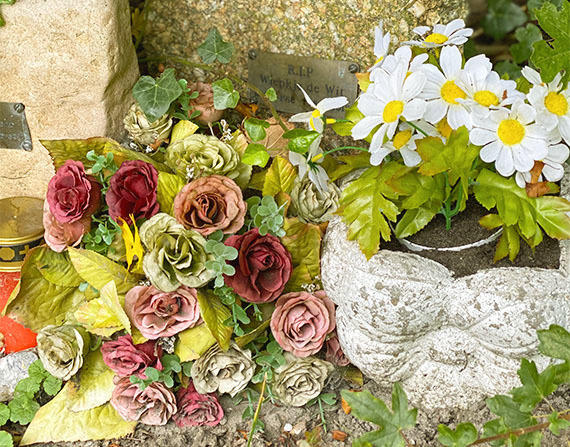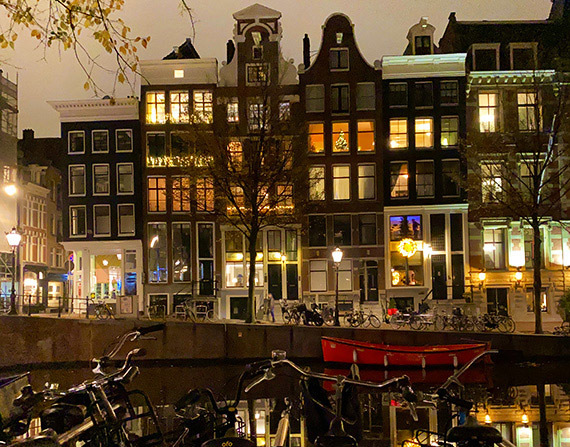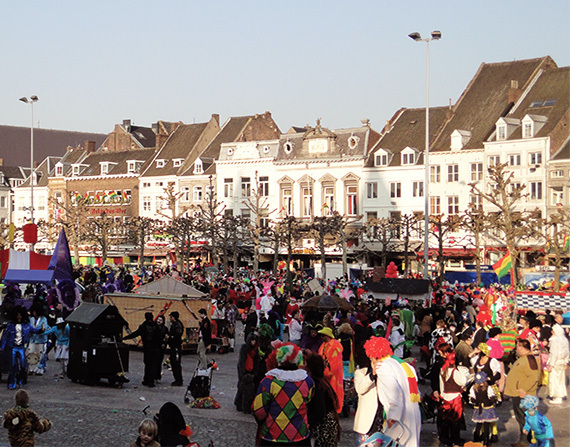The most tolerant nation in the world (?)
A Dutch language teacher once told me that I had a too idealist and romantic view towards the Dutch, as if I had pictured a perfect - or naive - impression of its nation. That statement had a profound effect on me; I was disappointed. The culture of thoughts and mind-sets I had kept as ideals to myself, since the first time I visited the Netherlands, in 2011, had suddenly faded away as we spoke. That conversation somehow turned me down and until today I secretly reflected upon this; ever since I have been trying to find out if I was actually wrong.
To cherish this love for the Dutch culture and education, along with my everlasting dream to live in Amsterdam, has made me often to see them through different, shaded lens. Perhaps I have been fantasizing the model of a flawless, tolerant nation. But this doesn't mean they are not. After all, it has always been an open-minded nation to different doctrines and religions: it's not by chance that many philosophers and intellectuals such as the British, John Locke, had found refuge in the Netherlands between the 17th and 18th centuries. They could be left there at peace with their opinions, convictions and ideologies.
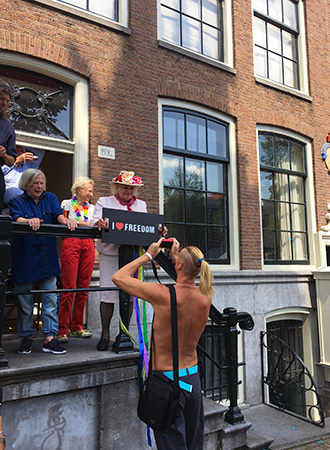
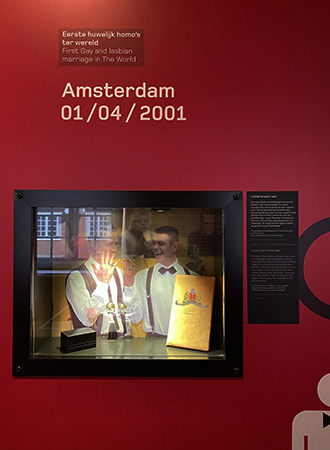
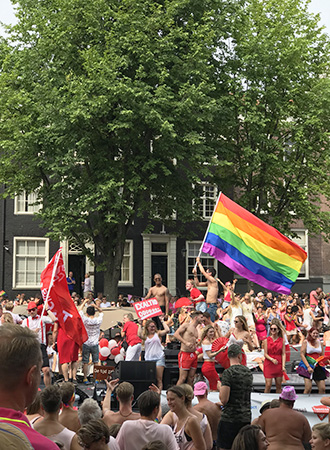
Worldwide model
The Netherlands was also the first country to accept and legalize same-sex marriage, in 2011. The prominent Gay Pride celebrates equal rights for gays, lesbians and transgender communities and gathers the whole city as well as public officials in every month of August. The beloved former mayor Eberhard Van der Laan (who passed away in 2017) was a great fond and supporter of the cause: he always manifested a sincere impetus to preserve Amsterdam's essence as a city where everyone can express and be themselves. As of the King Willem-Alexander, although not participating in the parties himself, he never hides empathy and pride towards a city that embraces an event which symbolizes respect, equality and freedom of speech. Speaking of which, the Gay Pride is one of the most wonderful parties in the country!
Some people may point out the mild approach to soft drugs' use as another aspect that reflects the Dutch tolerance, given the 500 coffeeshops throughout the country where marijuana can be purchased for personal consumption (recreational drugs). However, it can't be said that drugs are legal in the Netherlands: coffeeshops are granted permits to trade by the authorities and these same authorities will turn a blind eye to those in possession of 5g or less. It is stated on the Dutch Government website: "Soft drugs are less damaging to health than hard drugs. In the Netherlands, coffeeshops are permitted to sell cannabis under strict conditions. A coffee shop is an establishment where cannabis may be sold but no alcoholic drinks may be sold or consumed. This is part of the Dutch policy of toleration".
On the other hand, the infamous Red Light District gives Amsterdam a worldwide status as the capital of prostitution: although the city center has been a hub of sex workers since the 15th century, only in 2000 the government granted them official permission to operate thereby applying taxes. The capital's first female mayor, Femke Halsema, is not entirely happy about it and she has already declared that facilitating the sex business - requiring the women to register and pay taxes - essentially makes the government the pimp. There are currently 300 rooms/window brothels registered in the area.
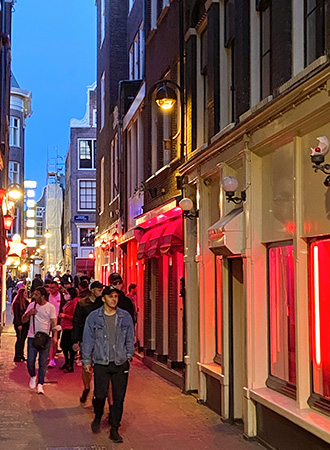
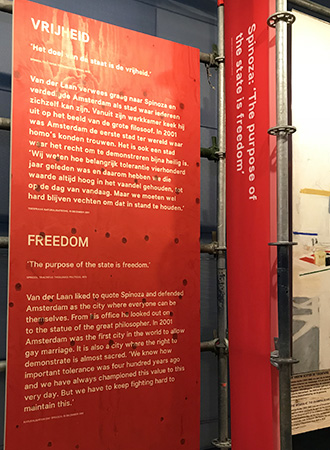
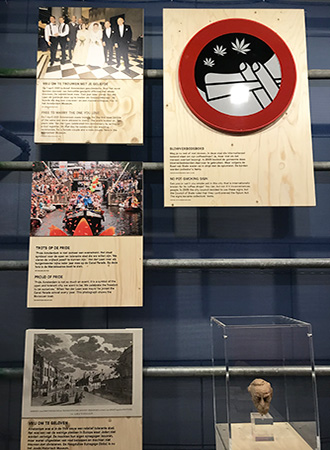
Common sense
After a few months familiarizing myself with Holland's idiosyncrasies and being able, day by day, to absorb all their aspects, I have found out another word to describe the Dutch mentality: pragmatism. This may not necessarily be good or bad. The Dutch is very pragmatic and always straight to the point (sometimes a bit too much, some would say). When having to cope with a challenging, problematic situation they usually deal with strength and boldness. They might even come out of that by taking advantage of the given situation. Dutch are tough people and we hardly see them in panic or showing the fragile side many of us have.
It won't take long until we notice a connection between these pragmatic patterns and the government's agenda. In other words, authorities rather control prostitution and drug usage instead of prohibiting what can goes out of control and it won't even generate financial contribution to the state. Nevertheless, Dutch people are known for appreciating their freedom, very much so. Not surprisingly they nurture a lifestyle in which bicycles are the main means of transport whereas some of them live in such non-conventional environments, like the houseboats. Perhaps because of their understanding on how freedom plays a vital role in everyone's lives that authorities did not adopt drastic measures since the beginning of the COVID-19 pandemic. It's certainly not my intention to claim whether their approach was right or wrong. In turn, this has been proving to be one that aimed to create balanced rules in order to keep what Dutch society values the most.
Sharp mind
It's so positive, fundamental when we are capable of evolving our beliefs while taking into account different points of views. I can realize today that my perspective towards the most tolerant nation in the world was, in fact, a little romanticized. However, I'm more than convinced that a little bit of pragmatism cannot hurt. Even more important, in my opinion, is to acknowledge the Netherlands is way closer to an "ideal model" of a tolerant country - if that exists - for guaranteeing security to its citizens and allowing them to be whoever they want to be.
